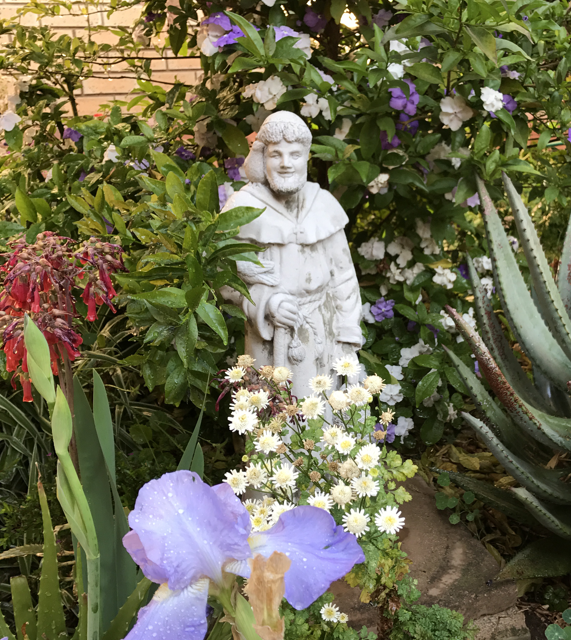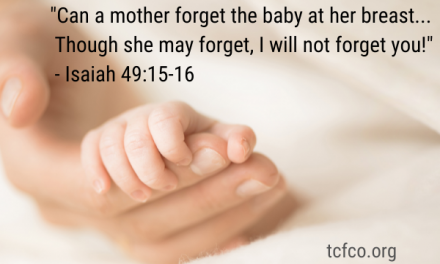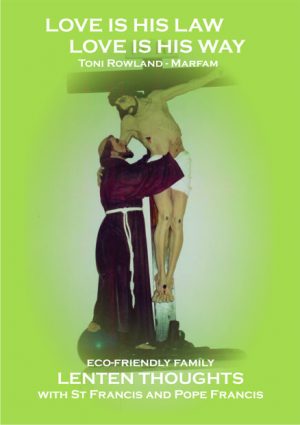December 19. From The Franciscan way. Francis used to praise God, the Artist, in every one of God’s works. Whatever joy he found he referred to their maker. Everything cried out to him, “He who made us is infinitely good!’ He called animals “brother” or “sister,” and he exhorted them to praise God. He would go through the streets, inviting everyone to sing with him. And one time when he came upon an almond tree, he said, ‘Brother Almond, speak to me of God.” And the almond tree blossomed. Saint Francis Assisi can do this for us once we are caught up in his life and teachings. He makes us blossom, wherever and whoever we are, because we see, in Francis, what could happen to us if we embrace the overflowing goodness of God revealed in everything that exists and so experience God’s joy.
Francis began his pilgrim journey of conversion alone, after his release from captivity as a prisoner-of-war. He was no longer interested in his friends, wealth and a good life. He lived as a beggar for some time while physically rebuilding the abandoned church at San Damiano. Gradually other came to join him. Clare was one of his early followers. As numbers grew some organisation became necessary. He wrote a simple but strict rule based on the gospel and was able to get approval of his rule for his friars from Pope Innocent III after they travelled to Rome in 1209. Clare’s community of sisters was founded not much later but received approval only on her death-bed.
The various branches of the Franciscan Friars (men) are known as the First Order of St Francis. Clare formed a community of contemplative nuns known as the Second Order of St Francis.
During his lifetime, many married men and women and even clergy and hermits were drawn to the vision of life offered by Francis, but due to their life commitments they were not able to enter the Friars Minor or the Poor Clares. For this reason, he founded a way of life to which married men and women, as well as the singles and the secular clergy, could belong and live according to the Gospel. This became the Third Order.
While the Third Order grew and developed down the centuries groups in the Church were founded for missionary, medical, teaching and other apostolic works. Many of these later groups followed a Rule of Life based on the Third order. Which now has two distinct branches. Ordinary lay people belong to the Secular Franciscan Order. In South Africa they come from every background and all over the country. They are grouped into local Fraternities and meet regularly for prayer and mission. Religious communities inspired by Saints Francis and Clare who also chose to follow the Rule of the Franciscan Third order are now known as Third Order Regular and in South Africa there are sixteen congregations of sisters and a group of brothers.
The Little Flowers of St Francis, contains stories of many of the lives and activities of other brothers of the time. Many were saintly men, while being human they also experienced difficulties within own their community and in their preaching ministry in the world.
ST ANTHONY PREACHES TO THE FISHES BECAUSE THE HERETICS HE WAS PREACHING TO RESISTED HIS WORDS. Christ, the blessed one, was pleased to show forth the great sanctity of his most faithful servant St Anthony, and how men ought devoutly to listen to his preaching, by means of creatures without reason. St Anthony being at one time at Rimini, where there were a great number of heretics, and wishing to lead them by the light of faith into the way of truth, preached to them for several days, and reasoned with them on the faith of Christ and on the Holy Scriptures. They not only resisted his words, but were hardened and obstinate, refusing to listen to him. At last St Anthony, inspired by God, went down to the sea-shore, where the river runs into the sea, and began to speak to the fishes as if the Lord had sent him to preach to them, and said: “Listen to the word of God, O ye fishes of the sea and of the river, seeing that the faithless heretics refuse to do so.” No sooner had he spoken these words than suddenly so great a multitude of fishes, both small and great, approached the bank on which he stood, that never before had so many been seen in the sea or the river. All kept their heads out of the water, and seemed to be looking attentively on St Anthony’s face; all were ranged in perfect order and most peacefully, the smaller ones in front near the bank, after them came those a little bigger, and last of all, were the water was deeper, the largest. St Anthony began to preach to them most solemnly, saying: “My brothers the fishes, you are bound, as much as is in your power, to return thanks to your Creator, who has given you so noble an element for your dwelling; for you have at your choice both sweet water and salt; you have many places of refuge from the tempest; you have likewise a pure and transparent element for your nourishment. God, your bountiful and kind Creator, when he made you, ordered you to increase and multiply, and gave you his blessing. In the universal deluge, all other creatures perished; you alone did God preserve from all harm. He has given you fins to enable you to go where you will. To you was it granted, according to the commandment of God, to keep the prophet Jonas, and after three days to throw him safe and sound on dry land.” At these words the fish began to open their mouths, and bow their heads, endeavouring as much as was in their power to express their reverence and show forth their praise. St Anthony, seeing the reverence of the fish towards their Creator, rejoiced greatly in spirit, and said with a loud voice: “Blessed be the eternal God; for the fishes of the sea honour him more than men without faith, and animals without reason listen to his word with greater attention than sinful heretics.” And the people of the city hearing of the miracle, made haste to go and witness it. With them came the heretics who were touched in their hearts; and threw themselves at the feet of St Anthony to hear his words. The saint then began to expound to them the Catholic faith. He preached so eloquently, that all those heretics were converted.”
One does not have to belong to a particular association to adopt the spirituality of St Francis. Pope Francis adopted the name Francis and his vision, even though he is a Jesuit. His three encyclicals Evangelii Gaudium, Laudato Si and Fratelli Tutti are embued with the vision of Francis and all of creation.







Recent Comments